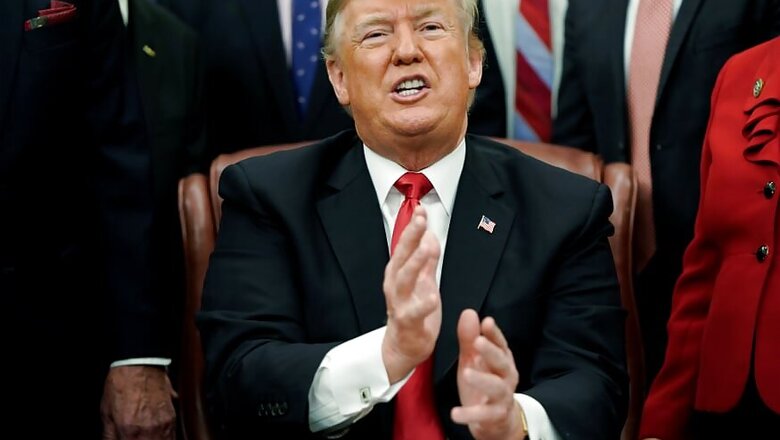
views
Washington: President Donald Trump said on Friday he was using the threat of tariffs to pressure European manufacturers to build more autos in the United States.
In a televised interview Trump also denied that trade talks with China had hit a bump in the road, saying they were nearing a conclusion.
The comments aired on Fox Business come as Washington pursues its long-running multi-front trade confrontation with the world's largest economic blocs.
Top trade negotiators are due to begin a fresh round of talks in Beijing next week and the White House is also considering imposing punishing duties on automobile imports on national security grounds — something economists say could send shockwaves through the global economy.
"I'll tell you what the end game is. They'll build their plants in the United States and they have no tariffs," Trump told the network.
Foreign automakers often point out that a significant share of their vehicles are already manufactured in the United States, either for domestic consumption or for export to third countries.
Industry representatives also fear such tariffs would invite retaliatory measures hurting US exports. The White House received last month a Commerce Department report on the auto industry that, two people familiar with the matter told AFP, concluded that auto imports pose a national security threat.
After receiving the report, Trump has until around mid-May to decide whether or not to impose tariffs.
Washington has used national security arguments to justify tariffs on aluminum and steel imports, which has drawn outraged responses from traditionally-allied trading partners.
Trump said Friday that threat came from imbalanced trade itself: "What poses a national security risk is our balance sheet," he told Fox Business.
He added that he was disinclined to agree that both the US and EU should reduce all auto tariffs to zero.
"The problem is that the Chevrolet will never be accepted in Europe like the Mercedes is accepted here, so it's not a good deal," he said.
He also told the network he wanted to keep the current 25 percent duties on a $50 billion tranche of Chinese imports.
"We want to keep that because we need that," he said. "We will absolutely be able to keep it." Trump previously said he expected to seal any final bargain at a summit with Chinese President Xi Jinping later this month, but that expectation has faded as momentum in the talks slowed.
"I think we're getting very close," Trump said, adding that a successful outcome was nevertheless not guaranteed.




















Comments
0 comment